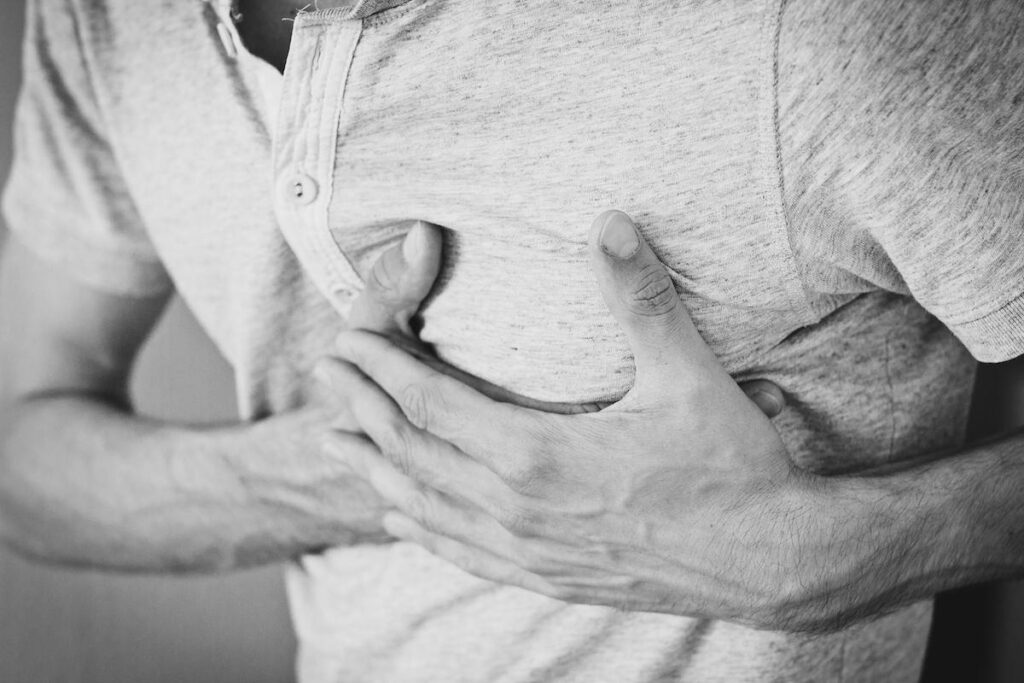Understanding the Physical Toll of Alcohol Withdrawal
For many people who stop drinking after a long period of alcohol use, the experience is far from easy. The physical and mental withdrawal symptoms can be intense, particularly in the early stages. One of the most unsettling symptoms is a racing heart, especially when paired with the inability to sleep. These reactions are common and can be alarming, especially for those who expected to feel better quickly after quitting. It’s important to know that these symptoms are normal and that support is available.
When someone quits alcohol, the body begins to adjust to functioning without a substance it has grown dependent on. Alcohol affects neurotransmitters in the brain and acts as a depressant, slowing the central nervous system. Over time, the body compensates for this by becoming more active and alert to maintain balance.
When alcohol is suddenly removed, the brain remains in a hyperactive state, leading to symptoms like increased heart rate, restlessness, and insomnia.
Why Your Heart Races After You Quit Drinking
One of the most commonly reported symptoms in early alcohol withdrawal is a racing heart. This condition, known as tachycardia, can make individuals feel as though something is wrong with their health. The experience can feel similar to a panic attack, leaving many people frightened and unsure of what to do next. However, it is a typical part of the body’s detox process as it attempts to recalibrate.
When you stop drinking, the lack of alcohol’s sedating effect on the brain can result in an overactive nervous system. This overstimulation causes a release of stress hormones like adrenaline, which increases heart rate and blood pressure. For someone who has relied on alcohol to calm these systems, the sudden spike in activity can feel overwhelming. It’s not uncommon for people to visit emergency rooms out of concern, only to learn they are experiencing withdrawal.
Insomnia After Quitting Alcohol
In addition to a racing heart, difficulty sleeping is another hallmark of alcohol withdrawal. Many people assume they will sleep better once they stop drinking, but this is rarely the case in the beginning. Alcohol disrupts natural sleep patterns, and when it is removed, the body may struggle to find a normal rhythm. Insomnia can persist for days or even weeks, and it often contributes to feelings of irritability, anxiety, and depression. Sleep problems during early recovery stem from the body’s inability to regulate the production of chemicals like GABA and dopamine, which influence mood and relaxation. Without alcohol to artificially boost these neurotransmitters, the brain must relearn how to create a healthy balance. Unfortunately, this process takes time, and in the interim, many people suffer from racing thoughts, restlessness, and physical discomfort at night.
The Importance of Medical Support During Withdrawal
Experiencing these symptoms can be discouraging, but there is good news. Alcohol withdrawal is temporary, and with proper medical care, the most severe symptoms can be managed. For individuals who are experiencing heart palpitations and sleeplessness after quitting drinking, professional detox is strongly recommended. Medical professionals can monitor vital signs, provide medication to ease symptoms, and ensure the individual’s safety throughout the process.
Detox programs are designed to stabilize patients during withdrawal. In more severe cases, withdrawal can escalate to delirium tremens (DTs), a potentially life-threatening condition involving hallucinations, seizures, and dangerously high blood pressure. These cases require immediate medical attention. Even in moderate cases, managing withdrawal in a supervised setting can significantly reduce stress and discomfort. It can also prevent individuals from relapsing out of fear or confusion about their symptoms.
Psychological Effects That Can Make Symptoms Worse
Alongside physical withdrawal, psychological symptoms often add to the difficulty of early recovery. Anxiety, panic attacks, and emotional instability are common. The sensation of a racing heart can trigger fear, which in turn exacerbates anxiety. The inability to sleep can lead to distorted thinking, paranoia, and emotional exhaustion, which further contribute to feelings of instability.
It is not uncommon for someone in early recovery to wonder if they are losing control or even “going crazy.” These thoughts are a result of the brain trying to regain chemical balance after years of alcohol misuse. With patience, therapy, and support, most people find these symptoms begin to fade after a few weeks. In the meantime, cognitive behavioral therapy (CBT) and other forms of counseling can help individuals cope with overwhelming thoughts and emotions.
Tips for Managing Withdrawal Symptoms at Home
While professional treatment is always recommended, especially for those with moderate to severe alcohol dependence, some individuals choose to detox at home. If this is the case, it’s important to take precautions. Hydration, rest, and nutrition play key roles in managing symptoms. Avoiding caffeine, staying in a calm environment, and limiting stressful interactions can help keep the nervous system from becoming overly stimulated. Support from friends or family is also essential. Even if someone chooses not to go to a facility, they should not go through withdrawal alone. Having someone present to check vital signs, provide reassurance, or call for help in an emergency can make a big difference.
If symptoms become severe (including extreme confusion, hallucinations, or chest pain) medical attention should be sought immediately.
Long-Term Recovery and Sleep Regulation
The good news is that these symptoms are usually temporary. As the body adjusts to life without alcohol, heart rate stabilizes and sleep patterns improve. Most people report that by the end of the first month, their ability to rest and relax has returned to a more normal state. Continued abstinence allows the brain to repair itself and regulate neurotransmitters naturally, leading to improved energy, focus, and emotional stability.
For those still struggling with sleep or anxiety in early sobriety, there are holistic and therapeutic options available. Practices such as yoga, meditation, and exercise can help calm the nervous system. Working with a therapist or joining a support group can provide emotional relief and reassurance. Over time, many people find they feel better than they have in years once they get through the initial discomfort of withdrawal.
Getting Help for Alcohol Addiction
The first step to recovery can often be the hardest. Many people delay seeking help because they are unsure what to expect or because they fear judgment. It’s important to know that alcohol addiction is a medical condition — not a personal failure. Treatment is available, and it works. Facilities like The Wave of North Florida in Lake City offer compassionate, evidence-based care for individuals struggling with alcohol dependence.
Our team understands the fear and uncertainty that come with quitting drinking. We provide personalized detox and rehab programs that address both the physical and psychological aspects of addiction. From the moment you walk through our doors, you’ll be met with understanding, structure, and support to help you begin your journey toward lasting recovery.
Why Early Treatment Matters
The longer someone waits to seek help, the more difficult withdrawal can become. Continued drinking can worsen health, increase tolerance, and raise the risk of developing severe complications. By choosing to get help early, individuals give themselves the best chance at a safe and successful recovery. Early treatment also reduces the risk of relapse by teaching people how to manage cravings, build a support network, and replace alcohol with healthier coping strategies.
A racing heart and sleepless nights may feel like a setback, but they’re actually signs that your body is healing. These symptoms are proof that change is happening, and with the right help, they are entirely manageable. Whether you’re just starting to consider sobriety or you’re already navigating withdrawal, know that support is available every step of the way. Contact us here.



